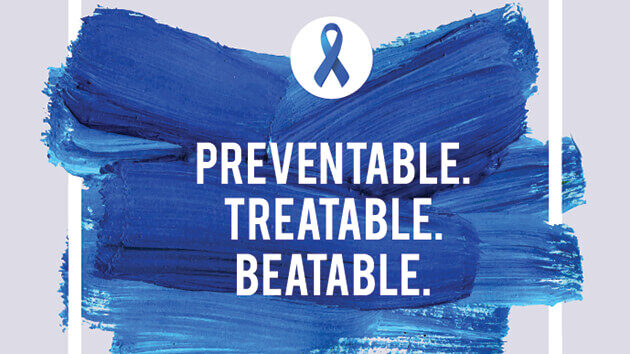Take Charge of Your Colon Health

During the pandemic, many people have delayed or put off medical procedures, including routine colonoscopies. But cancer doesn’t stop because of Covid-19.
Colorectal cancer is the third most common cancer among men and women and one of the most preventable cancers – when it’s caught early.
March is National Colorectal Cancer Awareness Month.
Regular screening, which can detect colorectal cancer early when it’s still highly treatable, is the best way to prevent colorectal cancer. The US Multi-Society Task Force on Colorectal Cancer recommends screening begin at age 50. However, if you have significant risk factors, screening can begin at age 45, as per the American Cancer Society.
“Colonoscopy is still the tier one recommendation for screening, but for patients who cannot undergo the invasive procedure and are low-risk, there are other options,” said Asra Batool, MD, a gastroenterologist and assistant professor of Medicine at Albany Med.
According to Dr. Batool, an annual fecal immunochemical (FIT) test that looks for signs of cancer in a person’s stool may be a good option for patients who are not at high risk for developing colorectal cancer.
Other options for low-risk patients include CT colonography (virtual colonoscopy) which can be done every five years; Cologuard, which combines a FIT test with testing for DNA biomarkers and can be done every three years; or a flexible sigmoidoscopy, which examines the lower part of the colon and can be done every five years.
“There is no doubt that screening saves lives,” said Dr. Batool. “Talk with your doctor about which option is best for you and remember that no matter which test you choose, the most important thing is to get tested.”